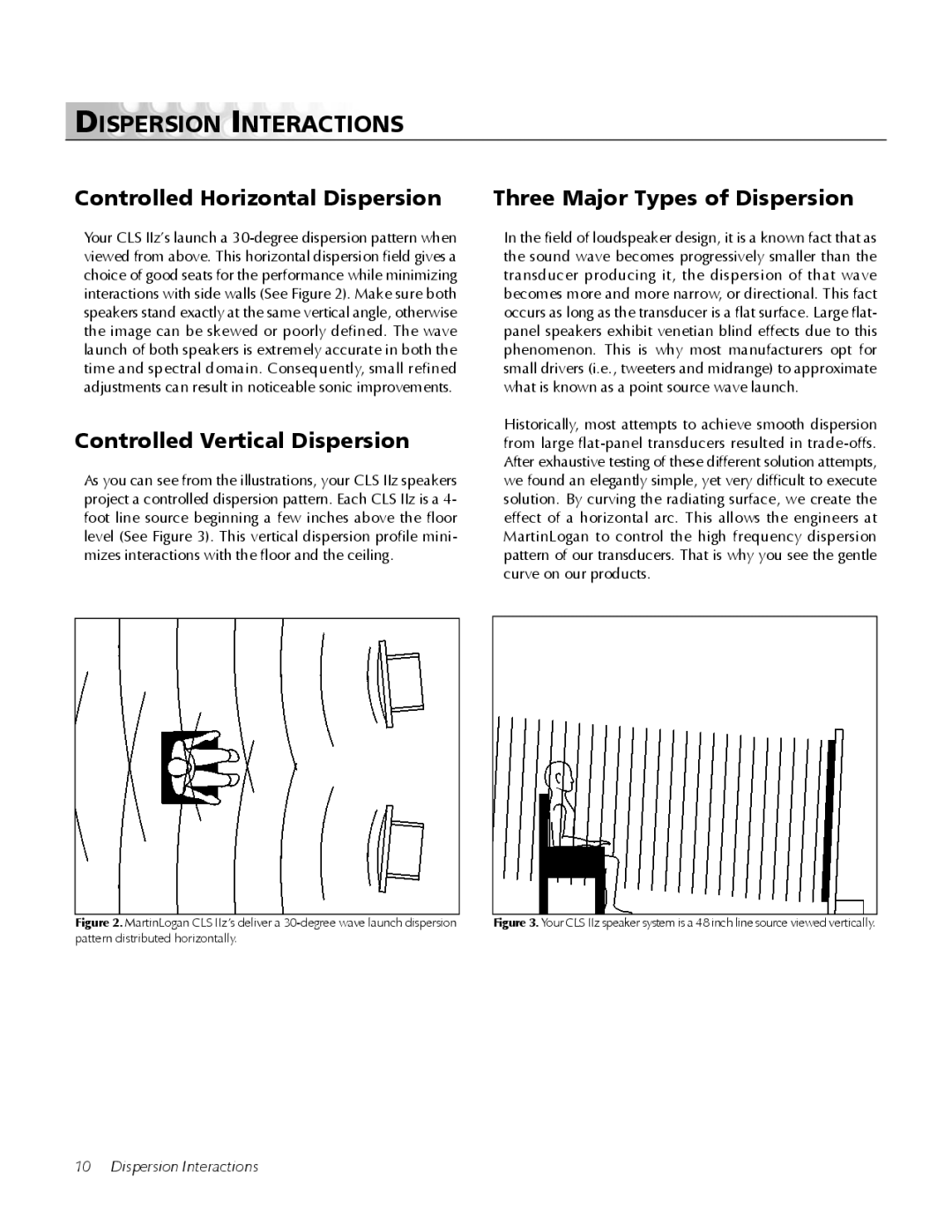CLS IIz specifications
The MartinLogan CLS IIz is a sophisticated hybrid electrostatic loudspeaker that exemplifies the brand's commitment to innovation and exceptional audio performance. This model is a continuation of the legendary CLS design, which has garnered a loyal following among audiophiles and music enthusiasts alike.One of the standout features of the CLS IIz is its electrostatic transducer design. Unlike conventional dynamic speakers that rely on moving coils and cones, electrostatic speakers use a thin, electrically charged diaphragm sandwiched between two stators. This design allows the CLS IIz to produce sound with extraordinary clarity, speed, and precision, making it particularly well-suited for accurately reproducing the nuances of vocal performances and acoustic instrumentation.
The CLS IIz also integrates a new, more advanced version of the brand's Curvilinear Line Source technology. This innovation provides a wider and more consistent sound dispersion pattern, resulting in an expansive soundstage that immerses listeners in their favorite recordings. The speaker’s tall, slender design further enhances this effect, allowing for an impressive imaging capability that places sounds precisely within the listening environment.
Another key characteristic of the CLS IIz is its frequency response. The speaker is capable of reproducing frequencies from an astonishingly low 38 Hz to a remarkable 25 kHz. This wide frequency range ensures that music and audio content are delivered with great depth and richness, fully capturing the lower bass notes while maintaining the sparkling clarity of high-frequency sounds.
In terms of build quality, the CLS IIz features a sturdy yet elegant cabinet that minimizes resonance and vibration, allowing for pure audio reproduction. The speaker's sleek aesthetic is complemented by high-quality finishes, ensuring that it looks as good as it sounds, making it an attractive addition to any audio setup.
Additionally, the CLS IIz boasts versatility in its setup, allowing for positioning flexibility that accommodates various room sizes and acoustic conditions. This ensures that enthusiasts can achieve optimal sound quality regardless of their environment.
In summary, the MartinLogan CLS IIz is a marvel of modern audio engineering that combines cutting-edge technologies with a commitment to high fidelity sound. With its electrostatic design, advanced dispersion capabilities, wide frequency response, and elegant build, the CLS IIz stands as a testament to MartinLogan's dedication to providing an unparalleled listening experience.

